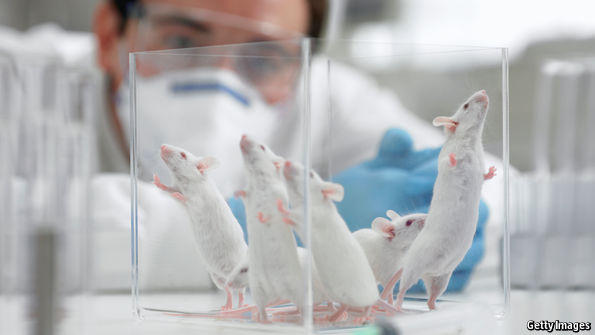Are laboratory mice too clean?

THE hygiene hypothesis posits that certain diseases—notably asthma, eczema and type-1 diabetes—which are becoming more common than they once were, are caused in part by modern environments being too clean. The diseases in question result from misfunctions of the immune system. The hygiene hypothesis suggests such misfunctions are the result of children’s immune systems being unable to learn, by appropriate exposure to viruses, bacteria, fungi and parasitic worms, how to respond properly.
If modern human homes are unnaturally clean, though, they are as nothing compared with the facilities in which experimental mice are housed. Those are practically sterile. That led Lili Tao and Tiffany Reese, two researchers at the University of Texas Southwestern Medical Centre, in Dallas, to wonder if such mice would display extreme versions of the predictions of the hygiene hypothesis.
This would matter, because mice are often used in medical experiments on the assumption that their reactions are similar enough to those of human beings for them to act as stand-ins. Conversely, laboratories’ spotlessness might also mean mice are sometimes too healthy to act as useful…Continue reading
Source: Economist




